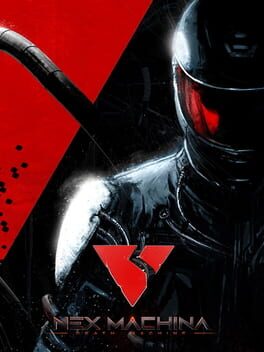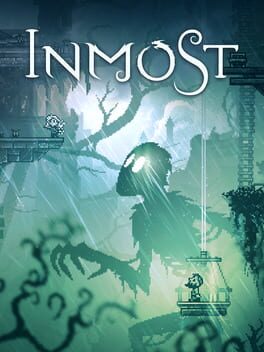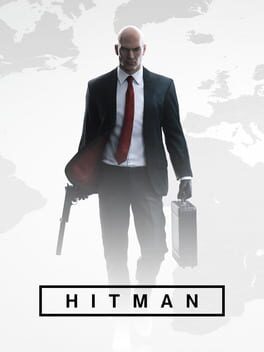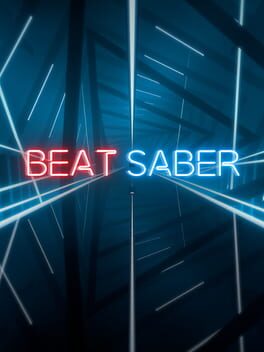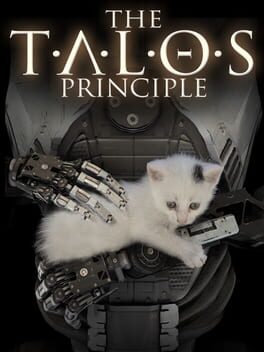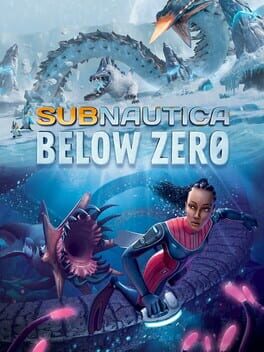OtroMono
9 reviews liked by OtroMono
Nex Machina
2017
Inmost
2019
Mixed feelings about this. It feels like a step down from previous Yakuza games. Combat is better than on Like a Dragon, but that's mostly it (it's still not great, really). Story-wise, it just has too much up and downs and the pacing feels off, something that Yakuza games always nailed, with some exceptions.
I was afraid that the Hawaii thing was going to feel very "non-yakuza", as the Japan setting is half of what makes the series, but it ended up the other way, feeling "too much like Japan". It really feels like Okinawa 2.0. Everyone speaks Japanese, most people look Japanese, there is no language barrier, no cultural differences... Characters come and go from Hawaii like it's a bus stop away... They could have done so much with it, but it felt like just another location with different food.
Characters are also a bit problematic here, they are not really expanded, and other that the street small talk, there is not much to them (contrary to prior Like a Dragon). Also, I would have liked that they took more chances, story-wise, with Kiryu. It felt too safe.
Ichiban is a great character, but I think he destabilizes the usual yakuza balance of serious/silly that the series is known for, leading much more in the the silly side, and giving these fun/stupid moments less weigh overall.
Despite all this, I loved the game, but (and this might be just me) I feel that the series is feeling a bit both stale and with declining writing quality since Ishin, Gaiden and now this one.
I was afraid that the Hawaii thing was going to feel very "non-yakuza", as the Japan setting is half of what makes the series, but it ended up the other way, feeling "too much like Japan". It really feels like Okinawa 2.0. Everyone speaks Japanese, most people look Japanese, there is no language barrier, no cultural differences... Characters come and go from Hawaii like it's a bus stop away... They could have done so much with it, but it felt like just another location with different food.
Characters are also a bit problematic here, they are not really expanded, and other that the street small talk, there is not much to them (contrary to prior Like a Dragon). Also, I would have liked that they took more chances, story-wise, with Kiryu. It felt too safe.
Ichiban is a great character, but I think he destabilizes the usual yakuza balance of serious/silly that the series is known for, leading much more in the the silly side, and giving these fun/stupid moments less weigh overall.
Despite all this, I loved the game, but (and this might be just me) I feel that the series is feeling a bit both stale and with declining writing quality since Ishin, Gaiden and now this one.
Hitman
2016
I slept on this franchise for too long. I never expected it to be this funny; mixing slapstick humor with the usual attempt at seriousness from contemporary western action movies really works out. While the design mainly supports the fantasy of elegant infiltration and thoughtful strategy, there is room for those "screw it, we are going loud" moments a la GTA, making failed runs actually enjoyable when you try to salvage the mission and get your targets down anyway.
The progression system has been discussed long enough at this point (yes, call it Metroidbrainia if you really want) but I really admire the amount of polish and the potential for more and more content, to me it justifies that such a thing as World of Assassination exists.
Regarding this volume specifically, all missions turned out to be neat sandboxes but Sapienza and Marrakesh do stand out in terms of level design. Also audio is incredibly satisfying.
MORRRRTADELOOOOO POWEEEEEERRRRRR
The progression system has been discussed long enough at this point (yes, call it Metroidbrainia if you really want) but I really admire the amount of polish and the potential for more and more content, to me it justifies that such a thing as World of Assassination exists.
Regarding this volume specifically, all missions turned out to be neat sandboxes but Sapienza and Marrakesh do stand out in terms of level design. Also audio is incredibly satisfying.
MORRRRTADELOOOOO POWEEEEEERRRRRR
Final Fantasy VII
1997
Beat Saber
2019
Beat Saber
2019
The Talos Principle
2014
A friend of mine had told me that when he played this game he found all puzzle base elements simply not fun, and I realise now that it is true. When compared to Portal (chronologically and thematically it is impossible not to), things like jammers and laser connectors are not something that you feel excited to play around with, as opposed to portal guns and bouncing gels. However, there isn't really much space for disappointment to sink in as the excellent level design constantly pushes the player forward, teaching more and more indirect mechanics and relationships between elements that empower the inevitable "eureka" moments.
Nevertheless, puzzles are not the strongest point of The Talos Principle in my honest opinion: the narrative is what sets it apart from other similar puzzle games, mixing a myriad of themes and influences (from philosophy of mind to Jeff Goldblum) with the right amount of ambition. I have to mention here the strike of genius in those recorder puzzles where you end up, in a way, communicating with yourself from 30 seconds ago, which links directly with what you are being told about the creators of the Talos project in the library archives and voice messages.
Thankfully I never got to a point where a puzzle frustrated me seriously, if anything the ones from the final sections tend to be way longer. What bothered me the most though was the awful game save system, I wonder if it could have been a little more flexible.
Final note: please, you must not sleep on the DLC Road to Gehenna. I think I liked that story even more than the base game. It is true the difficulty of the puzzles spikes up significantly, so at first it may be not appealing at all if you start it right after beating the campaign, with your brain all tired and mashed; but that whole crazy robot heaven Reddit plot is masterfully written and certainly unique.
Nevertheless, puzzles are not the strongest point of The Talos Principle in my honest opinion: the narrative is what sets it apart from other similar puzzle games, mixing a myriad of themes and influences (from philosophy of mind to Jeff Goldblum) with the right amount of ambition. I have to mention here the strike of genius in those recorder puzzles where you end up, in a way, communicating with yourself from 30 seconds ago, which links directly with what you are being told about the creators of the Talos project in the library archives and voice messages.
Thankfully I never got to a point where a puzzle frustrated me seriously, if anything the ones from the final sections tend to be way longer. What bothered me the most though was the awful game save system, I wonder if it could have been a little more flexible.
Final note: please, you must not sleep on the DLC Road to Gehenna. I think I liked that story even more than the base game. It is true the difficulty of the puzzles spikes up significantly, so at first it may be not appealing at all if you start it right after beating the campaign, with your brain all tired and mashed; but that whole crazy robot heaven Reddit plot is masterfully written and certainly unique.
A beautiful expansion of an already gorgeous game, Subnautica: Below Zero is probably just Subnautica Plus, but to me it was incredibly enjoyable anyway.
The game flow and mechanics remain very similar to the first entry, up to the point that gameplay felt rushed in its earliest stage: I'm not sure if it was because I "knew how to play" already but I had the impression I got a ton of blueprints, items and upgrades way too fast. It's only after the setup, and after finishing that "Subnautica 101" (get a vehicle, get depth upgrades, build a home) when the differences start to add up.
More than anything, it's the narrative what got a nice glowup. Themes such as our need for closure and the legacy we want to leave behind are explored more directly than in the first game, with more "cutscenes" and relying less on flavor texts and Firewatch-like narration. I won't spoil anything, but I was SO happy to see that elements from very secondary plots in the original Subnautica get to be under the spotlight here, that was a really pleasant surprise. It shows a lot of loving care of your own worldbuilding.
The new biomes had nice level design, with new ideas for fauna and flora that invite you to take risks and make room for great emergent narrative. I was skeptical at first about the absence of the old vehicles, but the Seatruck turned out to fit in very well. It has the same feeling of home with wheels the Cyclops used to have, with a higher level of customizability.
On a somewhat negative note:
- Annoying accumulative performance issues, even with a high-end machine.
- I found the ending surprisingly meaningless: I managed to beat the game without ever visiting one notable location that was being constantly foreshadowed. This, plus a couple of continuity errors, left me very confused when the credits started to roll.
The game flow and mechanics remain very similar to the first entry, up to the point that gameplay felt rushed in its earliest stage: I'm not sure if it was because I "knew how to play" already but I had the impression I got a ton of blueprints, items and upgrades way too fast. It's only after the setup, and after finishing that "Subnautica 101" (get a vehicle, get depth upgrades, build a home) when the differences start to add up.
More than anything, it's the narrative what got a nice glowup. Themes such as our need for closure and the legacy we want to leave behind are explored more directly than in the first game, with more "cutscenes" and relying less on flavor texts and Firewatch-like narration. I won't spoil anything, but I was SO happy to see that elements from very secondary plots in the original Subnautica get to be under the spotlight here, that was a really pleasant surprise. It shows a lot of loving care of your own worldbuilding.
The new biomes had nice level design, with new ideas for fauna and flora that invite you to take risks and make room for great emergent narrative. I was skeptical at first about the absence of the old vehicles, but the Seatruck turned out to fit in very well. It has the same feeling of home with wheels the Cyclops used to have, with a higher level of customizability.
On a somewhat negative note:
- Annoying accumulative performance issues, even with a high-end machine.
- I found the ending surprisingly meaningless: I managed to beat the game without ever visiting one notable location that was being constantly foreshadowed. This, plus a couple of continuity errors, left me very confused when the credits started to roll.
